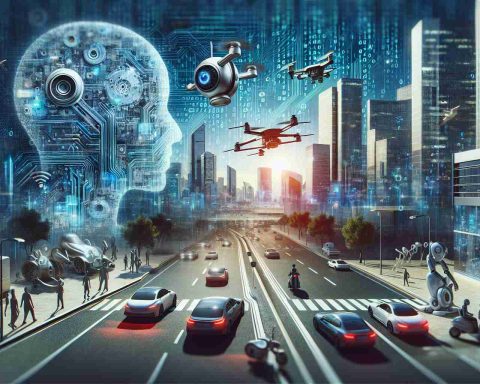Introduction: The emergence of generative Artificial Intelligence (AI) technologies, primarily highlighted by the introduction of Chat GPT in 2022, has sparked widespread interest across multiple sectors. This technological evolution influences both public and private organizations, marking a pivotal shift in how society interacts with AI’s capabilities.
Advancements and Regulations: The integration of AI systems within public entities is now a tangible reality, yet significant structural and cultural changes remain necessary. The recent establishment of the EU Regulation (EU) 2024/1689 marks a critical step towards harmonizing AI practices. This regulation provides a foundational understanding of AI systems, defining them as machine-based entities capable of operating autonomously and adapting over time to generate predictions and decisions that impact various environments.
The Role of AI in Achieving Sustainable Development Goals (SDGs): The omnipresence of technology and AI compels us to examine their potential in supporting the Sustainable Development Goals (SDGs) outlined in the 2030 Agenda. Despite challenges brought about by the COVID-19 pandemic and geopolitical conflicts, leveraging technology could significantly enhance efforts to meet these goals.
Positive and Negative Impacts: The relationship between AI and the SDGs is complex; while AI can facilitate the achievement of numerous objectives, it may also hinder others. Recent expert research highlights that AI could contribute positively to 134 targets but may inhibit 59. Thus, careful regulatory oversight is crucial to ensure ethical and effective use of AI, especially in safeguarding vulnerable populations.
Unlocking the Potential of AI: Tips, Hacks, and Interesting Insights
Introduction: As generative Artificial Intelligence (AI) continues to evolve and reshape industries, it’s essential to harness its potential effectively. Here are some valuable tips, life hacks, and interesting facts that can help you navigate the world of AI while maximizing its benefits.
1. Embrace AI-Powered Tools: Leverage tools that utilize AI to streamline your daily tasks. For example, applications like Grammarly enhance your writing with real-time grammar suggestions, while AI-driven project management tools can help assign tasks and predict project timelines.
2. Stay Informed About AI Regulations: Understanding legal frameworks like the recent EU Regulation (EU) 2024/1689 can empower you to use AI responsibly. Being aware of these regulations ensures that your use of AI aligns with ethical standards and helps avoid potential legal issues. For more details on regulations, you can visit the EU official site.
3. Explore AI in Sustainable Development: Investigate how AI technologies can contribute to achieving Sustainable Development Goals (SDGs). AI can analyze vast amounts of data to identify patterns that help address issues like poverty, education, and environmental sustainability. Being proactive in integrating AI into these areas can lead to impactful results.
4. Leverage AI for Data Analysis: Data is the new oil, and AI excels in extracting insights from it. Use AI-driven analytics tools to uncover trends and make informed decisions for your business or personal projects. Whether it’s customer behavior analysis or market research, AI can help you gain a competitive edge.
5. Understand the Dual Nature of AI: While AI has the potential to benefit society, it can also pose risks. Awareness of both the positive and negative impacts, as noted in recent research where AI was found to assist 134 targets but impede 59, is crucial. This balanced perspective will guide you in making ethical AI decisions.
Interesting Fact: The Future of AI is Collaborative: Many believe that the future of AI will focus on augmenting human capabilities rather than replacing them. A collaborative approach between humans and AI can drive innovation and create new opportunities across various sectors, from healthcare to education.
6. Engage with AI Ethics Discussions: Participate in conversations about AI ethics and its societal implications. Understanding the ethical dilemmas posed by AI, especially related to biases and inclusivity, can help foster a responsible AI ecosystem that benefits everyone, particularly vulnerable populations.
Tip: Invest Time in Learning: Continuous learning is critical in the rapidly changing landscape of AI. Many platforms offer courses and workshops that can help enhance your understanding of AI technologies and their applications. Consider enrolling in online courses or attending webinars to stay ahead.
Conclusion: The integration of AI into our lives is inevitable and impactful. By adopting these tips and remaining informed, you can contribute to a future where AI serves humanity’s best interests. The responsible use of AI will not only enhance efficiency and innovation but also ensure that we work towards a more sustainable and equitable world.

















